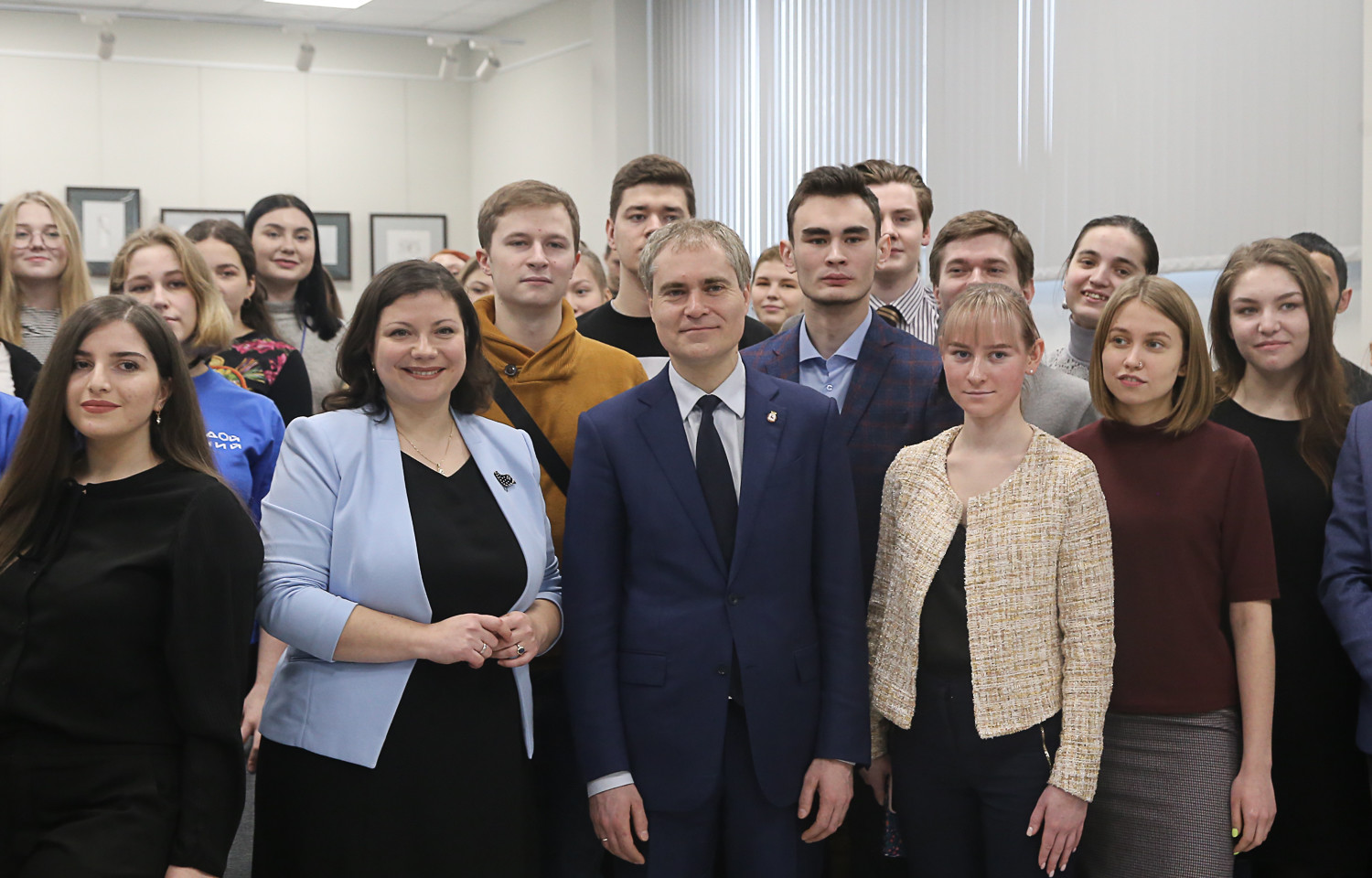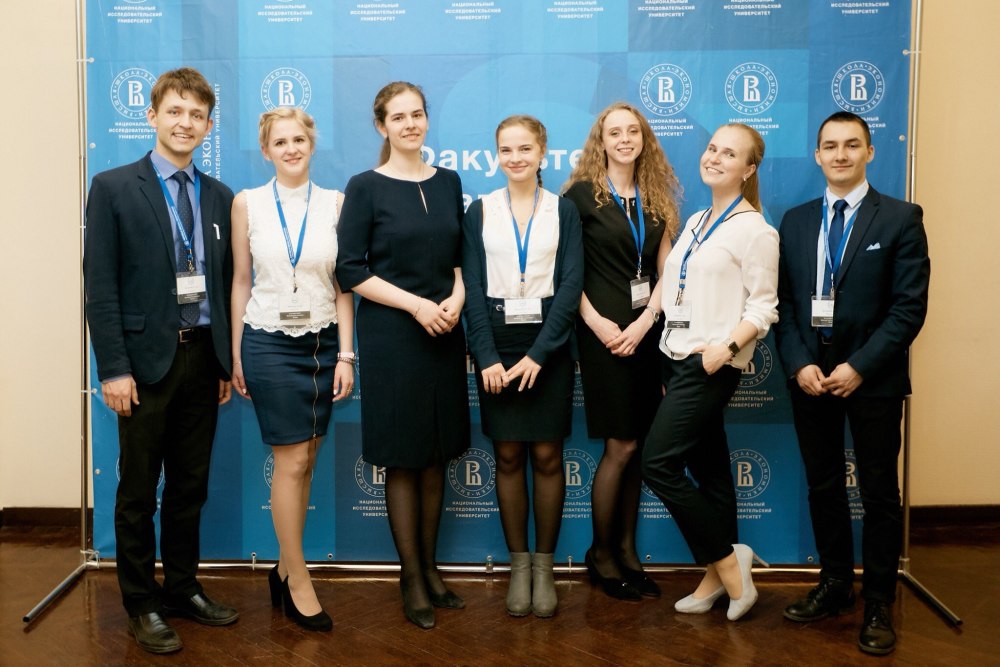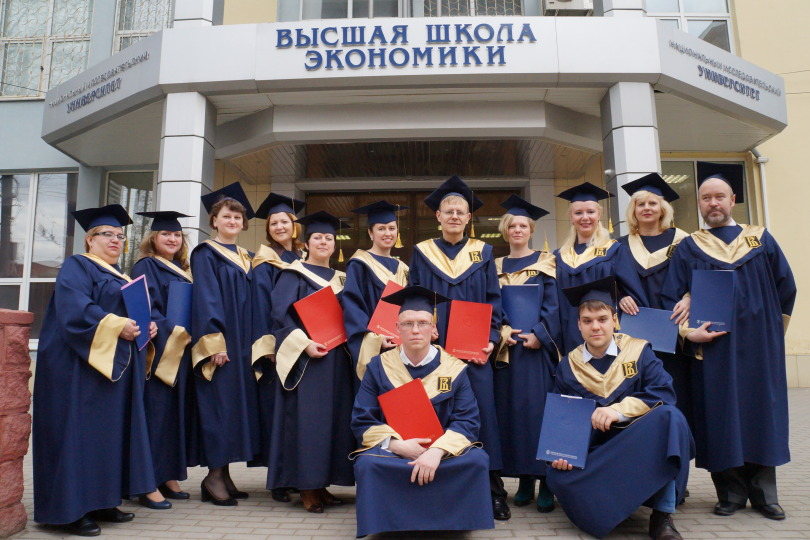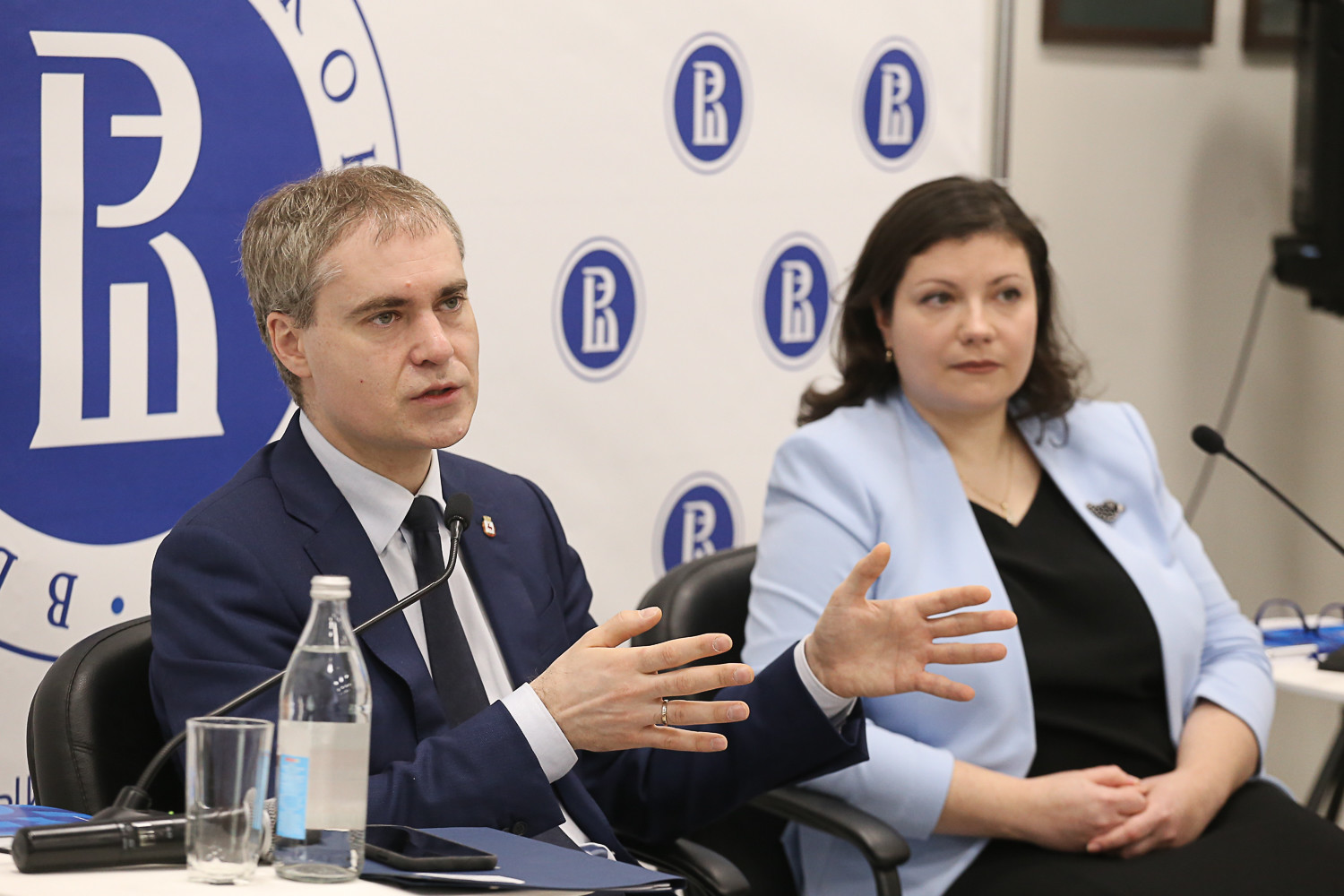‘Our Task Is to Do Things Better, or Do the Things That the Region Lacks’

HSE University's English-language newsletter, HSE LooK, has talked to Anna Blyakhman, Director of the HSE Nizhny Novgorod campus, about the history of the campus, its most noteworthy achievements, and future plans.
Anna A. Blyakhman started working at HSE Nizhny Novgorod in 2004 as a teacher in the Mathematics Department, eventually becoming Deputy Director of HSE Nizhny Novgorod. In 2019, she was appointed Director of the Nizhny Novgorod campus.
The Nizhny Novgorod campus was the first non-Moscow campus. In your opinion, what made it stand out back then and what makes it stand out among other campuses today?
Every HSE campus is special in its own way. It was huge luck that the first HSE campus outside of Moscow was opened in Nizhny Novgorod; this is thanks to the courage and determination of our founding fathers – Lev Lvovich Lyubimov and Yaroslav Ivanovich Kuzminov, as well as the first campus director Gennady A. Yakshin.
In fact, Nizhny Novgorod has always been a university town. We have many [Editor’s note: over 30] different universities with their own unique histories. Nizhny Novgorod is the closest city to Moscow that has over one million residents. And, certainly, Lev Lvovich was attached to the city [Editor’s note: as the father of Lev Lvovich was a conductor at an opera house in Nizhny Novgorod, the family lived in the city for a long time]. When the idea occurred about improving the quality of regional (economic) education, spreading new ideas and education models that were already tested at the Moscow campus, the choice fell on Nizhny Novgorod. This has certainly left a certain imprint on us and placed a special responsibility. For the many ideas that occurred, we got used to being an experimental site. For example, there are different models of interaction with the regional education system - secondary school and general education systems. Our colleagues from the Perm campus quite seriously are addressing this issue now, but many initiatives were first taken here.
Another example is the field of Business Informatics, which was launched on our campus. Since Nizhny Novgorod used to be a closed city for many years, and natural sciences, physics and mathematics were quite advanced here. Over time, when the city opened again in the 1990s, it became a Russian IT mecca, also setting forth a certain trend for the development of our campus. Although the IT trend is understandable – data culture and digitalization are widely widespread now - this is one of the main distinctive features that make the campus stand out among the other HSE campuses in general. As I say to the parents of our potential students: ‘Every programme has an IT lining’. When we discuss the development paths of our programmes, project ideas and initiatives, the IT component always forms the basis of anything.

The campus does a lot – research, education of students and schoolchildren, and entrepreneurship. What is the priority? What does it seek to achieve?
I think this is the model for HSE – everything is in its ‘zone of attention’ and everything is connected. Whenever we make a decision about any development – be it the opening of a new laboratory or start of an educational programme – we always think how such a decision would affect all other spheres at our institution. If it is clear there is no perspective in certain other spheres, we can think of more. For example, we had a Master’s programme in applied mathematics and informatics.
During meetings with partners, we realized there was also a need to prepare students in computer linguistics. Thus, we introduced a track within the Master’s programme itself. Furthermore, we realized that, in order to train specialists who would be suitable for companies, they must possess a fundamental linguistic education. Since the Nizhny Novgorod Linguistic University could not provide this in the way it was needed for the computer linguistics programme. So, we looked at our Bachelor’s programme – what could be added to it so that students might be better prepared for the master’s programme. Any initiative is considered in a similar way.
In this regard, how close is the Nizhny Novgorod campus to the classical university model? Is it the Higher School of Everything, the Higher School of Economics, or the Higher School of IT?
I would never claim we are about ‘everything’. I generally think that a regional campus cannot and should not be about everything. In addition, this is not the task we have given ourselves. Even though we are part of HSE, we still live in Nizhny Novgorod and consider what is happening in the region. Our task is to do things better than they are now, or do those things that the region lacks. Our aspiration is to help the region to both develop and thrive.
When we understand what our contribution is - developing unique philologists, who can engage in applied linguistics and work with IT products, who can also analyze data and actually understand how data analysis can be used in philology. This is what we do. If we see that the region lacks professional designers and no one can train designers as HSE can – we would thus design the appropriate programme here.

What else characterizes the interaction between the university and the city/ region? Is it only your educational mission?
We also have a social mission. A knowledge-intensive environment of a university fosters the development of creative human capital. Thus, we educate, help to learn different competencies, give an opportunity to relax and express oneself in non-professional areas, to meet different people, get advice or gain experience. In principle, our institution should be a point of attraction for regional residents. The more universities, the better. People start having more options. It is a place where both old and young can meet. It happens quite often, and I feel great pleasure while in one of the university buildings, we be having a large corporate meeting with top managers or HR heads of corporations while, at the same time, primary school students are running around because they are taking part in school Olympiads. Children can see that adults also study and need to acquire new knowledge, while adults see that children are different nowadays – they can reason and do not exclusively study in schools. This is how a knowledge-intensive environment is formed and developed. I believe it should be further developed and expanded.
With so many projects and initiatives, what are you most proud of?
We are very proud of the Academy of Primary School Students, as well as our experience of working with children in general. This is a dream that came true two or three years ago – there are many children at the university on a permanent basis. They are not afraid of the institution or the students here. Their parents visit as well and they can understand that the university is for all people; it is also for children.
We have different programmes and formats for schoolchildren who are tired of the standard school frameworks and want to look around and see other people, look at school subjects from a different angle, and talk to different teachers. They also have a chance to come to the university with a different environment and different air, meet schoolchildren of the same age but from a different school, as well as talk about school subjects. These all make schoolchildren gentler, better, more easy-going, and more cheerful. They develop the desire to visit the university, in addition to their regular school. We give them this opportunity through free and tuition-paid programmes, along with clubs of different directions. Little by little, they develop an attachment to our institution coupled with the ability to reason and reflect on different situations. They get the chance to try their hand at various things, e.g., intrusive vocational guidance.

What is the role of international students in the development of your campus?
Around 10% of our student body comes from abroad. Most of them come from former Soviet republics. I remember the feeling of uncertainty when they started arriving. Back then, we did not know the situation – is this going to be good, or bad? Today, I can say with confidence that I am very happy we have them here. I see how relations between Russian and non-Russian students have changed. I see how Russian students, who only heard what our country used to be like from their parents, start asking questions they would have never asked if students from other countries had not been here. I see how Russian students consider things during student meetings and most of the credit for this must go to students from other countries. In terms of teaching, this cannot be replaced by anything.
Another aspect is the ongoing development of the learning environment. If there is a non-Russian-speaking student in the classroom, we will need to make them feel more comfortable – by not posing questions in Russian, not giving answers in Russian, not presenting learning materials in Russian. Fortunately, we started to have more students like this on campus.
Moreover, it is helpful and interesting when students learn about each other’s mentality and find out how people can be more or less sensitive to certain things. For example, when students in the Global Business Master’s programme (a partnership of three universities – Johannes Kepler University (Linz, Austria); University of Bergamo (Italy); and HSE University (Nizhny Novgorod, Russia)) recently shared their thoughts about cheating and deadlines, they realized how different their cultures are.
Although we get the most prepared and the most motivated learners, while also cooperating with the regional government and corporations to encourage the best students stay here, we also understand there is another challenge – instructing them in a way that only HSE Nizhny Novgorod can offer and make sure they return to their regions.

What are some plans for the further development of the campus?
We have many plans with respect to AI research and computer sciences. We are launching a new Master’s programme on Computer Vision this year, which, we hope, will create a serious impetus for its further development.
My keen personal interest is working with school children and our corporate partners. We need to build relationships with our corporate partners more comprehensively, not just as potential employers or vendors of application projects.
Our campus is also involved in drawing up the regional strategy for local HR development, which will not work without the comprehensive and combined effort of business and education. Our region is the most indicative and illustrative of this, as we are the closest million-person city to Moscow and the rate of the brain drain is terrifying. We did research together with the regional government on this topic and found out that Nizhny Novgorod is used as a springboard before moving further to west – to Moscow, St. Petersburg, or abroad. Our main goal – in terms of the education system and business – is to change the situation and the attitude towards our region. We are both a college town and an industrial town with many enterprises not only in IT, but also in mechanical engineering, steel and the chemical industries. There are businesses here to work with. Since we see the need for such cooperation with corporate partners from outside as well, we hope and are ready to operate as a pilot campus – something we proposed for the 2030 HSE Development Programme for the whole of the institution. Through foresight sessions and workshops, we develop different options for cooperation between regional corporate partners, youth and faculty. We also work on joint social projects with businesses in the interest of the region, along with projects to build educational trajectories for schoolchildren, e.g., early vocational guidance, in which corporations can provide vocational training. Consequently, any educational trajectory should be possible while you are within an academic space.

You have been at HSE for nearly 19 years. What made you choose this place and stay?
Something I tell my students – be with those whom you want to reach. In this regard, HSE has always offered me such an environment, where there would always be people to look up to. It is tremendously difficult and you are often on edge, but it is always interesting. Nothing will happen if there is no interest. It can be hard and even painful, but it’s always interesting. You are always in a cascade of events involving some incredible people. And this is a true motivation!
Anna Blyakhman
Director of HSE University in Nizhny Novgorod
Yaroslav Kuzminov
Academic Supervisor
Gennady A. Yakshin
Professor, Nizhny Novgorod Branch Department of Industrial Management and Logistics
See also:
‘English Will Still Be the Global Language of Scientific Communication’
The HSE University Academic Writing Centre (AWC) was created to offer linguistic support to researchers writing articles in English. We spoke to the head of the AWC, Svetlana Suchkova, about the centre’s current initiatives, whether it has had to change the focus of its activities, and why HSE University staff come to the centre.
‘I Prefer Work to Most Types of Pastime’
Ivan Arzhantsev has headed up the Faculty of Computer Science since it was established in 2014. He has never been a specialist in Computer Science – all his life he’s been engaged in mathematics. On his 50th birthday, he shared with HSE Life how this has helped him to lead the best HSE faculty.
HSE University in Perm: The Upcoming Anniversary
On September 12, 1997, HSE University in Perm was established by decree of the Government of the Russian Federation. A year later, the university enrolled its first students.
Mathematicians and Practicing Surgeons to Fight Venous Diseases
One million people in Russia suffer from venous diseases. The ‘Intelligent data analysis for healthcare information systems’ Mirror Lab project brings together expertise in mathematics and medicine in order to better diagnose various conditions in phlebology. Project leader Vasilii Gromov talked to The HSE LooK about its achievements and prospects.
An Economics and Engineering Approach to Energy Supply Development in Remote Areas of Russia
Ilya Dolmatov, Director of the HSE Institute of Economics and Utility Regulation, heads a Mirror Lab project titled ‘Models of Energy Infrastructure Development in Russia’s Remote and Isolated Territories’ and implemented together with a university in Irkutsk. Why is energy efficiency a particularly pressing problem in remote territories? How can economics and engineering work together to solve it? Ilya Dolmatov addressed these and other issues in his interview for The HSE LooK.
Two Russian Regions Cooperate in Migration Studies as Part of Mirror Labs Project
What does Kaliningrad Oblast, an exclave Russian territory, have in common with Perm Krai, a region in the Urals? How do researchers use digital humanities methods to study migration? Sergei Kornienko, Leading Research Fellow at the Group for Historical Research (HSE University-Perm), heads the Mirror Lab project ‘Migration as a factor of social transformation of Soviet regions during the post-war reconstruction period: an analysis through digital humanities’. In this interview for The HSE LooK, he talks about this collaboration.
HSE University Collaborates with University in Southern Russia to Compare Values and Identities across Generations and Regions
Is there a system of values that is common to the whole population of Russia? Do values differ across generations? Is it possible to carry out research among refugees? HSE University researchers joined forces with their peers from Kuban State Technological University to study values and intercultural relations across Russian regions as part of a Mirror Labs project. The HSE LooK talked about this cooperation to Nadezhda Lebedeva, Director of the HSE Centre for Sociocultural Research, who heads up the Mirror Lab project, and project participant Victoria Galyapina, Leading Research Fellow at the same Centre.
Harnessing Synergy
Through its Mirror Laboratories project, HSE University develops collaborations with academic institutions across the country. Today, it includes 22 ongoing projects in partnership with 20 universities in mathematics, computer science, economics, sociology, biology, history and many other fields. Marina Litvintseva, Director for Advanced Research at HSE University, coordinates international and mirror laboratory projects. In this year’s second issue of HSE LooK, she talked about the development of mirror laboratories and the future of the project.
'Learning what You Really Need'
Anastasia Likhacheva was appointed Dean of the Faculty of World Economy and International Affairs in November 2021. During her first six months in this position, she has faced numerous new challenges. In her interview with HSE University Life, she explains how she and the Faculty have been coping, why she spent just one year working outside of academia, and how prospective students can rethink their future careers in international relations.
'We Pursue Whatever Interests Us!'
MIEM HSE Professor Lev Shchur is celebrating his 70th birthday. In his recent interview with MIEM HSE News Service, he talks about the first scientific computer network created in the Soviet Union, the state of computational physics today, and the current online and offline work being conducted by his research team of undergraduates and faculty members.


